It may come as a shock to you that there are as many garage door types as there are garage types. And it is essential to choose the best garage door type. Not only does it impact the aesthetic of your property, but also serves as a form of security for your car(s) and other tools you store in the garage.
There are different types and materials of garage doors, and the best is one that is durable and operates the way you want it. This is very easy if you know exactly what it is you want. To make things easier for you, I will run you through the various types and materials of garage doors, along with key features to consider. So, let’s dive right into it, shall we?
Types of garage doors
1. Sectional garage doors
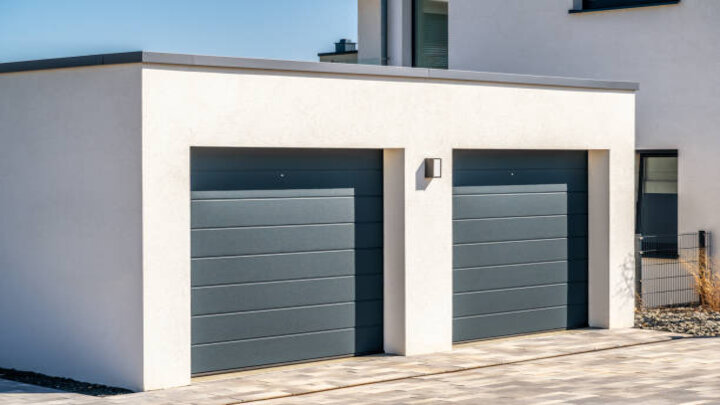
Sectional garage doors are the most common type used in the United States. They feature panels that are connected to hinges; whenever the garage door opens or closes, the panels slide along the curved track. The garage door moves up, bends, and rests underneath or parallel to the ceiling.
Materials
The most common types of materials used for sectional garage doors are;
- Aluminum
- Steel
- Aluminum and glass
- Wood
- Fiberglass
- Wood composite
Pros
- Low maintenance need
- Easy operation mechanism
- Customizable
- Comes in both insulated and non-insulated model
- Durable
Cons
- They take up ceiling space
- They are not too budget-friendly
- Dirt and dust can easily travel into the garage through each panel section
- There is a high probability of the door being stuck at some point in time
2. Roller or roll-up garage doors
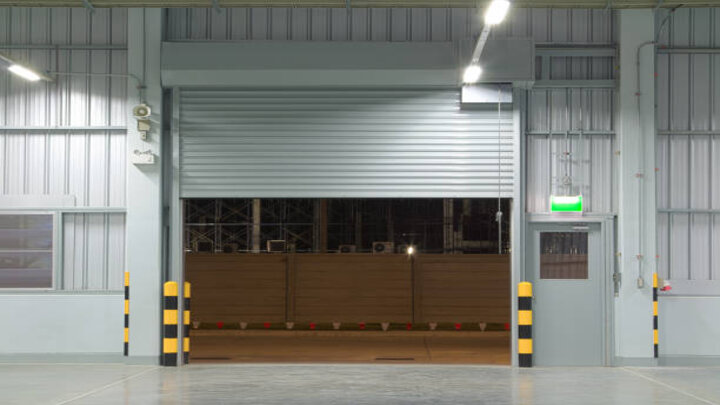
Roll-up garage doors are more common in commercial settings. But that doesn’t stop their usage in residential settings, especially ones with limited ceiling space. They are usually made of steel slats (but can be made of other materials as well) that roll around a drum as the garage door opens.
Materials
- Roller or roll-up garage doors can feature any of the following materials;
- Galvanized steel
- Wood
Pros
- Saves space
- Durable
- Enhanced security
Cons
- Costly
- Limited design option
- Limited materials, as most materials are unable to withstand the operation or usage
- Not all types are corrosion and rust-free
3. Side-sliding garage doors
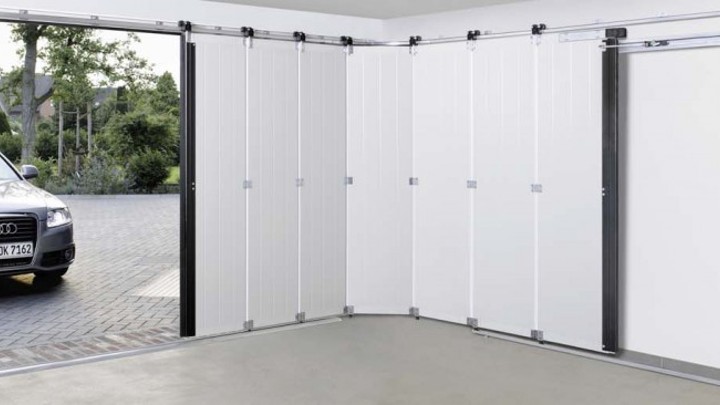
Side-sliding garage doors, also known as “slide to the side garage door,” operate just like the name implies, that is, sliding or bending to one side of the garage. This is a good choice because they are way safer and a perfect fit for garages with limited headspace.
Material
- Slide to the side doors can be made from the following materials;
- Wood
- Steel
- Aluminum
Pros
- Less noise compared to the other types
- Repair and maintenance is pretty easy
- Easy operation
Cons
- Very costly installation
- Cold temperature can affect the bottom track that helps to guide the door
4. Tilt-up/up and over canopy garage doors
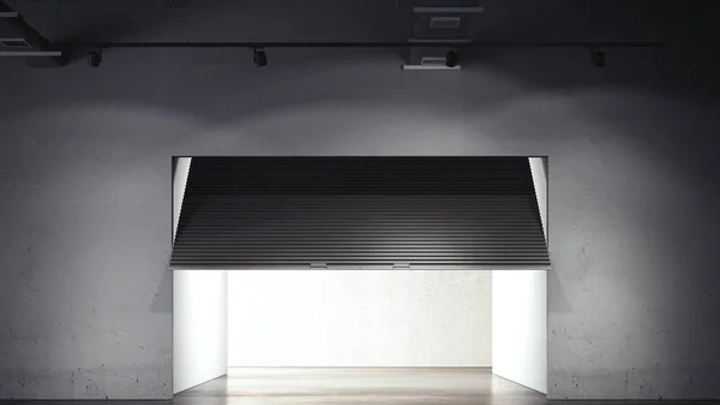
Tilt-up/up and over canopy garage doors are very common in modern houses all over the United States. They feature a solid piece without any visible section, coming with a pivoting mechanism that tilts up as they open. As it opens fully, it opens like a canopy that extends out of the garage.
Materials
- Aluminum
- Wood
- Steel
Pros
- They have a two-point locking mechanism preventing intruders from accessing your garage
- Many brands have anti-drop mechanisms preventing the door from dropping in case there is a failure
- Affordable
- Easy to install
- Requires little maintenance
Cons
- You can’t park your car close to the garage door else the garage door will dent the car
- Prone to damage from the element
- May not fit some architectural design
5. Tilt-up/up and over retractable garage doors
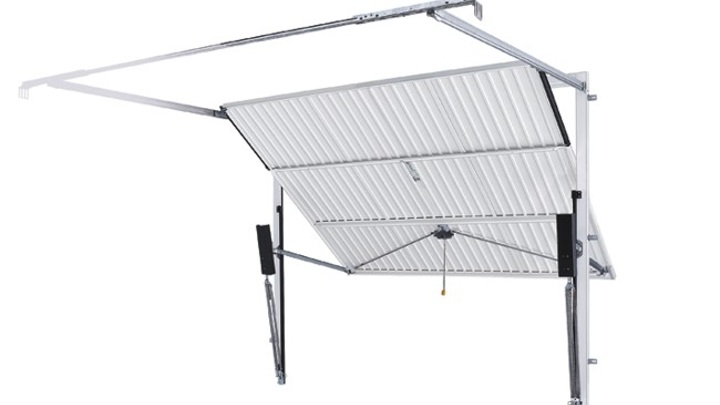
Tilt-up/up and over retractable garage doors, also termed bi-fold garage doors are very similar to Tilt-up/up and over canopy garage doors. As the garage door is opened, they lift up and into the garage, suspending independently from the frame. So they do not protrude like the Tilted-up/up and over-canopy garage doors.
Materials
- Steel
- Wood
- Reinforced aluminum
- Composite
- Fiberglass
Pros
- They can work adequately even in garages with limited
- Operation is relatively easy
- Durable
- Aesthetically appealing
Cons
- Expensive
- Requires steady maintenance as there are many working parts
FAQs
What is the most common type of garage door?
The sectional garage door is one of the most common types of garage door.
Which garage door material is most durable?
Steel is one of the most durable garage door materials.
Which garage door is the cheapest?
Talking price, Steel tilt-up/up and over canopy garage doors are among the least expensive types available on the market.
Which garage door material is easier to maintain?
Fiberglass is one of the easiest garage door materials to maintain.
How long should garage doors last?
Generally, the lifespan for garage doors is between 15 – 30 years.
Conclusion – Choosing the best type of garage door
Garages are nothing without a garage door; it ensure the security of your vehicle and other belongings you find yourself keeping in the garage. This is why choosing the best type of garage door is a meticulous decision that must be considered properly. Hopefully, I have been able to establish the different garage types and key factors that should help make your decision easier.
I hope you found this article helpful. You should also read this article on the types of doors for the home.
Thanks for reading.
1 thought on “Types Of Garage Doors With Their Advantages & Disadvantages”
Comments are closed.